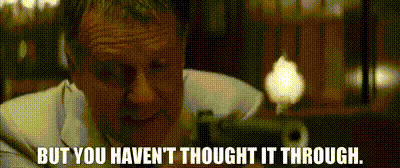With the aid of a wealthy erratic tippler, a dewy-eyed Tramp who has fallen in love with a sightless flower girl accumulates money to be able to help her medically.
And Jacob went out from Beer-sheba, and went toward Haran. And he lighted upon the place, and tarried there all night, because the sun was set; and he took one of the stones of the place, and put it under his head, and lay down in that place to sleep. And he dreamed, and behold a ladder set up on the earth, and the top of it reached to heaven; and behold the angels of God ascending and descending on it. And, behold, the LORD stood beside him, and said: “I am the LORD, the God of Abraham thy father, and the God of Isaac. The land whereon thou liest, to thee will I give it, and to thy seed. And thy seed shall be as the dust of the earth, and thou shalt spread abroad to the west, and to the east, and to the north, and to the south. And in thee and in thy seed shall all the families of the earth be blessed. And, behold, I am with thee, and will keep thee whithersoever thou goest, and will bring thee back into this land; for I will not leave thee, until I have done that which I have spoken to thee of.” And Jacob awaked out of his sleep, and he said: “Surely the LORD is in this place; and I knew it not.” And he was afraid, and said: “How full of awe is this place! this is none other than the house of God, and this is the gate of heaven.”
— Genesis 28:10–17 Jewish Publication Society (1917)
Multiple Selves & Information Systems
Between 1910 and 1939, Charlie Chaplin always played the same character in all his films — the beloved little Tramp that became world-famous. In 1939, Chaplin wrote, direct-ed and starred in The Great Dictator, in which the little Tramp did not appear. Instead, Chaplin played two charac-ters — a tyrant, based on Hitler, and a Jewish tailor, one of Hitler's victims. Audiences all over The World (except Germany, where the authorities banned the film) complained, mournfully and angrily, that they missed The Little Tramp.
Chaplin, however, having gotten rid of The Tramp once, never did bring that persona back.
In later films, he played many characters (a serial killer, a kindly old vaudevillian, a deposed King), but never The Tramp.
People still complained that they wanted to see The Tramp again, but Chaplin went on creating new characters.
(We will leave it to Jungians to explain why Chaplin had to become two opposite characters before he could personally escape the Archetype of The Tramp...)
Many actors have had equally hard battles in getting detached from, if not a specific character, a specific type.
Humphrey Bogart remained stuck in villain roles, usually gangsters, for nearly a decade before he got to play his first hero.
Cary Grant never did escape from the hero type — either the romantic hero or the comic hero; when Alfred Hitchcock persuaded him to play a murderer, in Suspicion, the studio over-ruled both of them and tacked on a sur-prise ending in which the Grant character did not commit the murder, after all. Etc.
Back in "The Real World," if a member of a family changes suddenly, the whole family suddenly appears agitated and disturbed. Family counselors have learned to expect this, even when the change consists of something everybody considers desirable — e.g., an alcoholic who suddenly stops drinking can "destabilize" the family to the extent that another member becomes clinically depressed, or develops psychosomatic symptoms, or even starts drink-ing heavily (as if the family "needed" an alcoholic). It seems that we not only speak and think in sentences like "John is an old grouch" but become disoriented and frightened if John suddenly starts acting friendly and generous.
(Audiences rejected the previously "lovable" Chaplin most vehement-ly when he played the multiple wife-killer in Monsieur Verdoux. Probably, audiences would not have felt upset if the role had gone to the actor who originally wrote it for himself and sold it to Chaplin when the Hollywood moguls blacklisted him — Orson Welles.) If Dickens° Scrooge had changed, in actuality, as he changed in the book, several people in his social field would have suddenly developed bizarre behaviors they had never shown before... Chaplin, amusingly, once made a comedy about the chaos created by a man who conspicuously does not exhibit the "isness" or "essence" our subject-predicate language programs us to expect, City Lights. In this film, the little Tramp encounters a millionaire with two entirely different personalities: a generous and compassionate drunk, and a greedy, somewhat paranoid sober man. The Tramp and all the other characters soon exhibit behaviors that would look like clinical insanity to the audience, if we did not know the secret none of the characters guess: namely that each "personality" in the rich man appears when brain chemistry changes. The Russian mystic Gurdjieff claimed that we all contain multiple personalities. Many researchers in psychology and neuroscience now share that startling view.
As Gurdjieff indicated, the "I" who toils at a job does not seem the same "I" who makes love with joy and passion, and the third "I" who occasionally gets angry for no evident reason seems a third personality, etc. There does not appear anything metaphysical about this; it even appears, measurably, on electroencephalograms. Dr. Frank Putnam of the National Institute of Health found that extreme cases of multiple personality — the only ones that ortho-dox psychiatry recognizes — show quite distinct brain waves for each "personality" almost as if the researchers had taken the electrodes off of one subject and attached them to another. (O'Regan. op. cit.)
Dr. Rossi defines these separate personalities as "state specific information systems." Not only do we show different personalities when drunk and when sober, like Chaplin's emblematic millionaire, but we have different information banks ("memories") in these states.
Thus, most people have noted that something that happened to them while drunk appears totally forgotten, until they get intoxicated again, and then the memory "miraculously" re-appears. This observation of state-specific information occurs even more frequently with LSD; nobody really remembers the richness of an LSD voyage until they take another dose. Emotional states seem part of a circular-causal loop with brain chemistry — it seems impossible, for science in 1990, to say that one part of the circle "causes" the other parts. Thus, we can now understand a phenomenon mentioned earlier, namely that we tend to remember happy experiences when happy and sad experiences when sad. The separate "personalities" or information systems within a typical human seem to fall into four main groups, with four additional groups appearing only in minorities who have engaged in one form or another of neurological self-research (metaprogramming).
Messengers from Heaven:
Gen. 28:10–19
Rebekah, Jacob’s mother, has warned him away from his brother, Esau, who is in a rage: Jacob tricked their father, Isaac, into giving him the blessing due to Esau as the older son. Jacob runs away to Haran, where his uncle lives. As God addresses him directly for the first time, restating the covenant made with Abraham, the patriarch dreams of a grand stairway reaching to the sky, where mal’akim go up and down: angeli – unknown in classical Latin. The older Greek translation influenced the Latin version: by the time that text was produced in late antiquity, biblical and extra-biblical Hebrew writings were using mal’akim for ‘angels’, like the current English word: for intermediate and later developments, see 1.7 , 12 , 15 , 18 ; 2.1 , 4 , 6 ; 5.10 – 11 , 15 ; 6.4 , 11 . *
Jacob left Beersheba to go towards Haran. Reaching a certain point, he stopped for the night because the sun had set. When he lay down to sleep, he took one of the stones there to put under his head. He dreamed of a stairway set on the ground with its top reaching to the sky, and God’s
messengers were going up and down on it. Beside him stood the Lord and said, ‘I am the Lord, the God of your father Abraham and the God of Isaac. I will give you and your descendants the ground on which you lie. Your descendants will be like the dust of the earth … I will not leave you until I have done what I have promised you.’ Waking from his sleep, Jacob said, ‘Surely the Lord is in this place, and I did not know!’ He was shaken and said, ‘How fearsome this place is! This is none other than the house of God, which is heaven’s gate.’ Early in the morning, Jacob took the stone he had put under his head, set it up as a pillar and poured oil on top of it. That place he called Bethel, though its name had been Luz.
Marley was dead: to begin with. There is no doubt whatever about that. The register of his burial was signed by the clergyman, the clerk, the undertaker, and the chief mourner. Scrooge signed it: and Scrooge's name was good upon 'Change, for anything he chose to put his hand to. Old Marley was as dead as a door-nail.
Mind! I don't mean to say that I know, of my own knowledge, what there is particularly dead about a door-nail. I might have been inclined, myself, to regard a coffin-nail as the deadest piece of ironmongery in the trade. But the wisdom of our ancestors is in the simile; and my unhallowed hands shall not disturb it, or the Country's done for. You will therefore permit me to repeat, emphatically, that Marley was as dead as a door-nail.
Scrooge knew he was dead? Of course he did. How could it be otherwise? Scrooge and he were partners for I don't know how many years. Scrooge was his sole executor, his sole administrator, his sole assign, his sole residuary legatee, his sole friend and sole mourner. And even Scrooge was not so dreadfully cut up by the sad event, but that he was an excellent man of business on the very day of the funeral, and solemnised it with an undoubted bargain.
The mention of Marley's funeral brings me back to the point I started from. There is no doubt that Marley was dead. This must be distinctly understood, or nothing wonderful can come of the story I am going to relate. If we were not perfectly convinced that Hamlet's Father died before the play began, there would be nothing more remarkable in his taking a stroll at night, in an easterly wind, upon his own ramparts, than there would be in any other middle-aged gentleman rashly turning out after dark in a breezy spot -- say Saint Paul's Churchyard for instance -- literally to astonish his son's weak mind.
Scrooge never painted out Old Marley's name. There it stood, years afterwards, above the warehouse door: Scrooge and Marley. The firm was known as Scrooge and Marley. Sometimes people new to the business called Scrooge Scrooge, and sometimes Marley, but he answered to both names: it was all the same to him.
Oh! But he was a tight-fisted hand at the grind- stone, Scrooge! a squeezing, wrenching, grasping, scraping, clutching, covetous, old sinner! Hard and sharp as flint, from which no steel had ever struck out generous fire; secret, and self-contained, and solitary as an oyster. The cold within him froze his old features, nipped his pointed nose, shriveled his cheek, stiffened his gait; made his eyes red, his thin lips blue and spoke out shrewdly in his grating voice. A frosty rime was on his head, and on his eyebrows, and his wiry chin. He carried his own low temperature always about with him; he iced his office in the dogdays; and didn't thaw it one degree at Christmas.
External heat and cold had little influence on Scrooge. No warmth could warm, no wintry weather chill him. No wind that blew was bitterer than he, no falling snow was more intent upon its purpose, no pelting rain less open to entreaty. Foul weather didn't know where to have him. The heaviest rain, and snow, and hail, and sleet, could boast of the advantage over him in only one respect. They often "came down" handsomely, and Scrooge never did.
Nobody ever stopped him in the street to say, with gladsome looks, "My dear Scrooge, how are you? When will you come to see me?" No beggars implored him to bestow a trifle, no children asked him what it was o'clock, no man or woman ever once in all his life inquired the way to such and such a place, of Scrooge. Even the blind men's dogs appeared to know him; and when they saw him coming on, would tug their owners into doorways and up courts; and then would wag their tails as though they said, "No eye at all is better than an evil eye, dark master!"
But what did Scrooge care? It was the very thing he liked. To edge his way along the crowded paths of life, warning all human sympathy to keep its distance, was what the knowing ones call "nuts" to Scrooge. “


